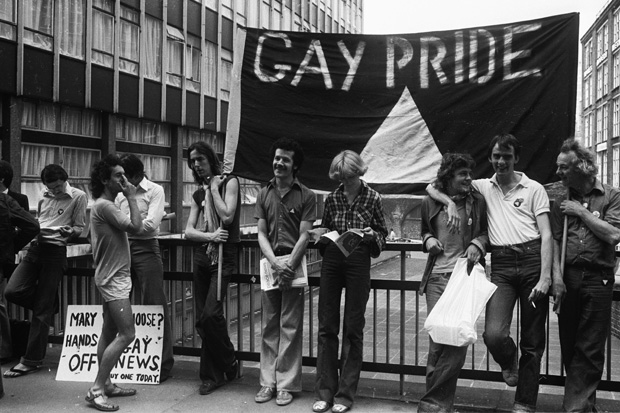Harry Christmas, the central character of this bitterly funny debut novel, is a middle- aged, overweight alcoholic, with no friends and no prospects. After marrying a woman and running off with her money, he flies to Venezuela. He justifies this in two ways, the first sentimental, the second pragmatic. He wants to visit the country of his deceased first wife’s family, and he wants to escape the Rot.
The Rot can be defined as everything that Christmas doesn’t like about England (or, we soon learn, about the world in general). This turns out to be a long and varied list. He despises the indoor smoking ban and sport, but he also can’t stand scatter cushions and people who make quotation marks with their fingers.
Most of all, he hates the internet and everyone who uses it; ‘an electric Gulag’, as he puts it, ‘a network of lonely children indulging in communities of self-surveillance’ (this appears more masochistic if you know that Gibson is co-founder of thepoke.co.uk, a popular humour website). The first few chapters, as Christmas does his best to deflect and avoid everything that irritates him, can be read as pure observational comedy. These passages mostly take place in airports or on planes, and are reminiscent of David Lodge’s early, globetrotting campus novels, although with a sharper edge.
But this is more than just a stand-up routine. Once in Venezuela, and after a couple of heroic binges, Christmas meets Judith, a lonely Englishwoman with a big house and a pottery habit. He lies to her as he has lied to almost everyone and pretends to be a novelist with writer’s block so that she will provide him with money and shelter.
A subscriber to the view that being English is about displaying ‘a mix of good manners and utter sadism’, Christmas seems only to have affection for his dead wife, whose favourite poetry book he carries around in his jacket pocket. It’s not long, however, before the people he’s defrauded and betrayed are too numerous to escape from. The greatest threat is William Slade, the mother-obsessed son of his second wife, who has followed Christmas to Venezuela. Slade loves knives and Anglo-Saxon re-enactments. He is both an inept assassin and an opaque psychopath, sizing up everyone he sees, imagining cinematic fight sequences with strangers, ‘a blizzard of punches and kicks, balletic moves executed with a serene face’.
Every character is broken, disappointed, let down by others or accustomed to letting others down. There’s a vein of sadness throughout that enlivens, and eventually overwhelms, the comedy. Gibson is very skilled at manoeuvring the narrative across different emotional plateaux, often switching between slapstick and tragedy within a single paragraph. This is, in effect, a simple tale of redemption. Yet the prose is so limber and the atmosphere so hallucinatory that Gibson has created something much more than that. Few first novels are as bold or as haunting as this.
Got something to add? Join the discussion and comment below.
Get 10 issues for just $10
Subscribe to The Spectator Australia today for the next 10 magazine issues, plus full online access, for just $10.













Comments
Don't miss out
Join the conversation with other Spectator Australia readers. Subscribe to leave a comment.
SUBSCRIBEAlready a subscriber? Log in